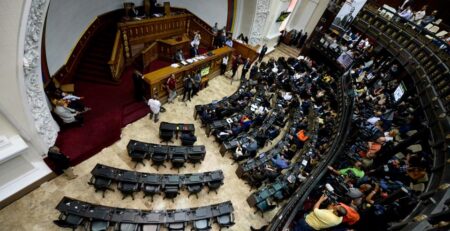Fully funded U.S. public pensions not necessary to ensure benefits -study
Most U.S. state and local government pension systems are not facing imminent crisis and do not need to achieve full funding to ensure benefits are paid to retired workers, according to a paper released on Wednesday by the nonprofit public policy Brookings Institution.
Retirement plans for state and local government workers have nearly $5 trillion in assets, but would need an additional $4 trillion to meet all of their obligations to current and future retirees, according to the paper.
Concerns over unfunded liabilities have weighed on credit ratings for some governments and sparked fears that certain systems could run out of money.
The study found that cash-flow pressures should start to ease in 20 years due to pension reforms that lowered or eliminated annual cost-of-living adjustments to pension payments and reduced retirement benefits for new hires.
“We find that pension benefits payments in the U.S., as a share of the economy, are currently near their peak and will remain there for the next two decades,” the paper said. “Thereafter, the reforms instituted by many pension funds will gradually cause benefit cash flows to decline significantly.”
Instead of striving for full funding, the paper suggested that under conservative discounting of liabilities and modest asset investment return assumptions, many systems can achieve financial stability with “relatively moderate” adjustments to their pension contributions.
“Plans can be sustainable in the sense that benefits are payable for the foreseeable future, while pension contributions are stable without being fully funded,” said Louise Sheiner, a Brookings policy director and co-author of the paper.
Read more @Yahoo Finance
204 views










